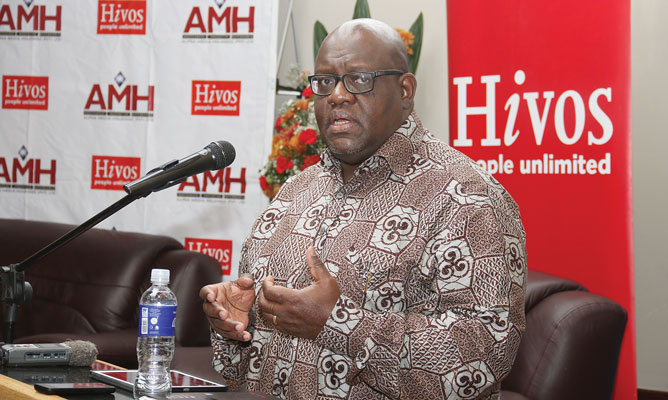
INTERNATIONALLY-RECOGNISED anti-corruption campaigner, John Githongo, yesterday urged Zimbabweans to adopt “social sanctions” to smoke out and invoke public anger against corrupt people to effectively fight the vice.
BY OBEY MANAYITI

Githongo, who was presenting at an Alpha Media Holdings (AMH) Conversations discussion themed Combating Corruption to Foster Sustainable Development, said attaching labels like “thief” to corrupt officials would put some social sanctions that would, in turn, invoke public disgust, where people would avoid associating with them.
“What makes any of you feel ashamed when called a thief in your village and in your home and how can we amplify that so that certain behaviours might become difficult in our societies?” he said.
Githongo said many people in Africa do not have a full appreciation of corruption and usually end up celebrating corrupt people, when they donate to their communities.
He took a dig at people who strive for public office solely for personal enrichment instead of being public servants.
Githongo also accused the private sector of abetting corruption by bribing public officials to safeguard their businesses.
He said corruption had become more sophisticated with globalisation with major banks, audit and legal firms becoming part of the architecture in global corruption.
- Chamisa under fire over US$120K donation
- Mavhunga puts DeMbare into Chibuku quarterfinals
- Pension funds bet on Cabora Bassa oilfields
- Councils defy govt fire tender directive
Keep Reading
Transparency International-Zimbabwe executive director, Mary-Jane Ncube said the concept of social sanctions works, but the country should look for a local model that invokes abhorrence of corruption.
“The concept works, but we need to find the actual tool and word that works for Zimbabwe. Essentially, people are not embarrassed by looting,” she said.
Ncube also highlighted that exposing corruption in Zimbabwe had been politically linked, with different factions trying to outsmart each other.
She said Zimbabwe needed to transform its policy and reduce Executive influence on key decisions and leave other arms of government like Parliament to ensure transparency and accountability.
Academic and political analyst, Ibbo Mandaza said there was need to eliminate corruption in different areas such as the State and private sector.
“The culprits must pay back. There is no reference at all to ensure the money looted is paid back. People are walking freely in the streets and if you can’t arrest them, then they should just pay back,” he said.
Derek Matyszak, from the Research and Advocacy Unity, said corruption was the modus operandi of Zanu PF governance.
Participants also accused the Zimbabwe Anti-Corruption Commission of being ineffective and following factional wars in their operations, but the commission denied the allegations.











